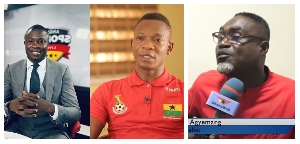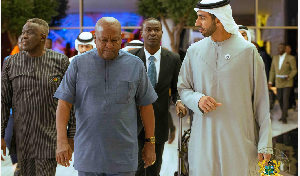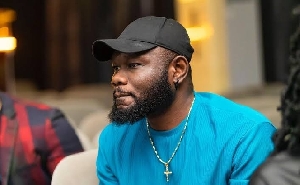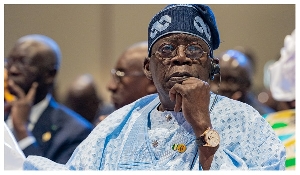Dear Editor,
While the ex-President, Mr. JJ Rawlings was trying to show how his family suffered at the hands of the government of the People’s National Party (PNP) between 1979 and 1981, he pointed an accusing finger at Dr. Nabila, who was then Minister of Presidential Affairs, for following his then pregnant wife. In the process, he referred to Dr. Nabila as a Gonja chief.
Firstly, Dr. J.S. Nabila is not a Gonja chief, neither is he a Gonja. Dr. Nabila is a Mamprusi and currently a chief of Wurugu in the Mamprusi area. I have since been wondering why ex-President Rawlings decided to include Gonjas in his diatribe at the NDC Congress. Dr. Nabila has his own name, and is responsible for his personal actions. Apart from being a Mamprusi chief, he is also the President of the National House of Chiefs and presently a member of the Council of State. He was also a lecturer at the University of Ghana, Legon. However, Rawlings by-passed all these titles and decided to rope in what he thinks is the tribal origin of Dr. Nabila. For some strange reason, Rawlings decided to affiliate Dr. Nabila with Gonjas and by implication, attacked Gonjas in general.
I have followed the activities of Rawlings for some time and have realized that he resorts to tribal bigotry whenever he has no good reason to support his accusations. This tendency is particularly aimed at Northerners. In 1982, he assembled a group, made up of mostly Northern soldiers to overthrow a government that was generally perceived as a Northern government. They included Sgt. Alolga Akatapore, Corporal Halidu Gyiwa, Corporal Aliu, Corporal Matthew Adabuga, Corporal Issaka Braimah, Sgt. Matthew Awal, Jack Mahoney, etc. Among the leadership of the June Four Movement at the time were Nyeya Yen, Nicholas Atampgugre, Chris Atim, Seidu Bawumia, Zaya Yeebo, Garibah Shaibu, Aloysius Denkabi, Rudolf Amenga Etego, Sakkua Agambila, all northerners. If they were guided more by their tribal origins or loyalties rather than a belief in social change, they were not likely to have worked with Rawlings for political action.
When he had no more use for them, he described those Northern soldiers as carriers of “bows and arrows” (a traditional hunting weapon in the north). Again, in a nationwide broadcast on 6th March 1983, he referred to his former northern “friends” (whom he had then decided to discard), as people who “might have experienced in their own lives or that of their families, the nefarious effects of oppressive structures, farmlands taken from their parents, forced migration experiences (to the south- author’s), a decay in tribal and social relations, etc. For these, any excuse or demand for understanding and tact worked like oil or fuel on fire. It infuriated and enraged them and they might have felt deceived. They are not ready for compromise”. (See Ghanaian Times, 8th March 1983).
The above statement was designed to portray the “northerners” as people who have no “understanding and tact”, and who get “infuriated and enraged” easily.
During the NPP time, Rawlings used the Dagbon crisis to win northern support for himself, when in reality, he does not waste time to paint them collectively with the same dirty brush, when he wants to tongue-lash only one person who happens to come from the North.
Rawlings should come out to explain why he decided to attack Gonjas for something that he claims Dr. Nabila personally did to him.
Mahmood Abdullai, Accra
Opinions of Thursday, 28 January 2010
Columnist: Abdullai, Mahmood














